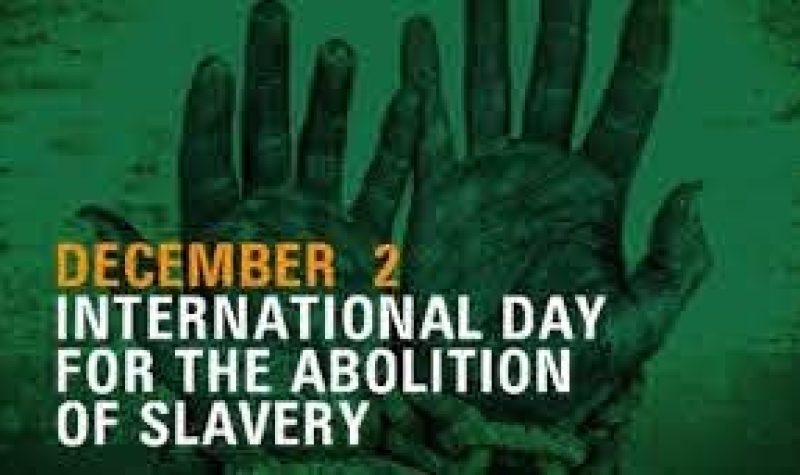Annually, the United Nations (UN) recognizes Dec. 2 as the International Day for the Abolition of Slavery.
For more than three decades, the UN has taken steps to raise awareness about the scourge of modern-day illegal slave trade, human trafficking, child labor, domestic servitude and unlawful recruitment and use of child soldiers.
Statistics by the International Labor Organization shows that an estimated 40.3 million people are in modern slavery, including 24.9 million in forced labor and 15.4 million are in forced marriages around the globe.
Of the 24.9 million people trapped in forced labor, 16 million people are exploited in the private sector such as domestic work, construction or agriculture; 4.8 million persons in forced sexual exploitation and 4 million persons in forced labor imposed by state authorities, according to the United Nations.
A further breakdown shows there are 5.4 victims of modern slavery for every 1,000 people globally, 1 in 4 victims of modern slavery are children while women and girls are disproportionately affected by forced labor accounting for 99 per cent of victims in the commercial sex industry.
In Canada, forty-three victims of human trafficking and forced labor were freed in February.
This summer, Sen. Julie Miville-Dechêne introduced Bill S-211 into the Senate, which if passed would enact the proposed Modern Slavery Act. The bill proposes mandatory modern slavery disclosure by companies in Canada or doing business in Canada, and an amendment to the Customs Tariff to prohibit the importation of forced labor and child labor-made goods.
Locally, several efforts have been made over time to raise awareness on the issue in Victoria. The Inter-cultural Association of Greater Victoria has held workshops to encourage victims of slavery to speak up.
CFUV 101.9FM spoke to Nancy Nyandika, co-founder of Black Speaks Victoria, who expressed dismay at the current figures of men, women and children suffering in situations of modern-day slavery.
‘"Our hope is that, as individuals and a community, we can take a moment to educate ourselves and understand how modern-day slavery is, to this day, a global as well as a local issue and how we can support organizations in the front lines against forced labor, child labor, human trafficking and all other forms of slavery," Nyandika said.
‘"If we all use our platforms to amplify the voices of the survivors of slavery, activists and policy makers involved in the fight against slavery, we can truly make a change,’’ Nyandika added.
Here is Nancy Nyandika speaking with CFUV:
The International Day for the Abolition of Slavery is separate another UN observance held on Aug. 23, which focuses on remembering the slave trade of earlier centuries, its oppressive and demeaning character and its final abolition.
To learn more, visit un.org/en/observances/slavery-abolition-day


